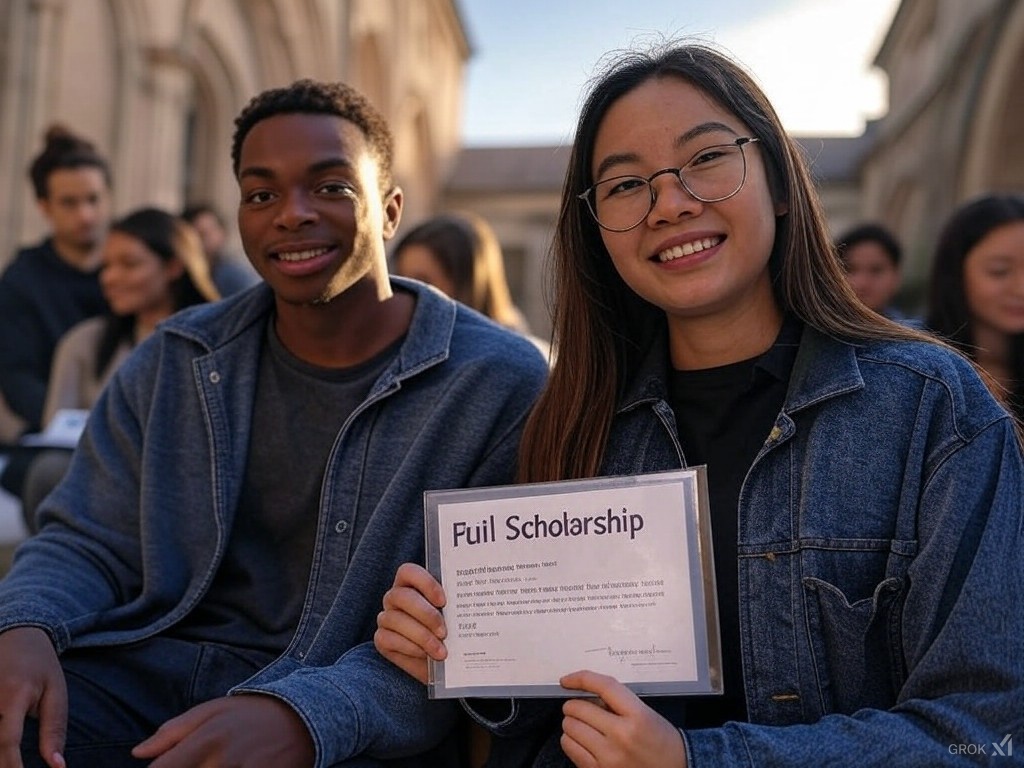Studying in Europe is a dream for many international students, thanks to the continent’s world-class universities, diverse cultures, and numerous scholarship opportunities. However, tuition fees and living expenses can be a major concern. Fortunately, several scholarships are available to help students fund their studies. Whether government-funded, university-specific, or provided by private organizations, scholarships can significantly reduce the financial burden of studying abroad.
If you’re looking for how to apply for scholarships in European universities for the 2026 academic year, this guide will walk you through the process step by step. We’ll cover where to find scholarships, eligibility requirements, application steps, and tips to boost your chances of success.
Researching Available Scholarships
The first step in securing a scholarship is thorough research. There are different types of scholarships available in Europe, including:
- Government-funded scholarships (e.g., Erasmus+, DAAD, Chevening, Eiffel Excellence Scholarship).
- University-specific scholarships (offered by individual European universities).
- Private or organization-based scholarships (provided by companies, NGOs, and foundations).
Where to Find Scholarships for 2026?
To find the best scholarships that suit your needs, check the following sources:
- Official scholarship websites: Erasmus+, DAAD, Chevening, Campus France.
- University websites: Many universities have dedicated pages for scholarships.
- Government portals: Ministries of education in various European countries often provide funding opportunities for international students.
- Scholarship databases: Websites like ScholarshipPortal, Study in Europe, and Education in Ireland list available scholarships.
Start researching early, ideally at least a year before your intended enrollment date. Keep track of deadlines and required documents so that you don’t miss out on opportunities.
Eligibility Criteria for European Scholarships
Before applying, you need to understand the eligibility requirements. Scholarships in Europe have different criteria based on academic excellence, financial need, research focus, or specific nationalities.
Common Eligibility Criteria
- Academic Performance: Many scholarships require a strong academic record (GPA requirements vary). You may need to provide transcripts and certificates.
- English Proficiency: If your course is in English, you may need IELTS, TOEFL, or equivalent proof of language proficiency. Some universities also accept alternative tests or previous education in English.
- Financial Need: Some scholarships, especially government-funded ones, prioritize students with financial difficulties. You may need to submit proof of income or financial statements.
- Research Proposal: For postgraduate scholarships, a well-structured research proposal is often required. Clearly outline your objectives and expected contributions to your field of study.
- Country-Specific Requirements: Some scholarships are restricted to students from specific countries or regions. Always check whether your nationality is eligible before applying.
Ensure that you meet all eligibility requirements before investing time in an application.
Preparing Your Scholarship Application
Essential Documents for Scholarship Applications
Each scholarship has different documentation requirements, but common documents include:
- Academic transcripts and certificates (translated if necessary).
- Statement of Purpose (SOP) or Motivation Letter (explaining why you deserve the scholarship).
- Letters of Recommendation (from teachers, professors, or employers).
- CV/Resume (highlighting your academic achievements and extracurricular activities).
- Proof of language proficiency (such as IELTS or TOEFL scores).
- Research proposal (for PhD and research-based scholarships).
- Financial documents (if applying for need-based scholarships).
Tips for Writing a Strong Motivation Letter
A motivation letter for a scholarship is a personalized statement where you express your passion for a particular academic program, outline your achievements, and demonstrate why you deserve financial support. It serves as your opportunity to connect with the selection committee on a personal level, showcasing your academic dedication, career aspirations, and how the scholarship will help you achieve your goals.
A compelling motivation letter not only highlights your qualifications but also conveys your enthusiasm, perseverance, and potential impact in your chosen field.
Your motivation letter is one of the most important aspects of your application. Here’s how to make it stand out:
- Personalize it for each scholarship.
- Clearly state why you’re interested in the course and university.
- Demonstrate your academic achievements and career goals.
- Use a structured format: introduction, academic background, career aspirations, and conclusion.
- Be concise and to the point (usually 500-700 words).
- Proofread to avoid grammatical mistakes.
A well-crafted motivation letter can make the difference between getting selected or being overlooked.
Step-by-Step Guide on Applying for Scholarships in European Universities
Here are application process to get you started:
Step 1: Find the Right Scholarship
Use scholarship databases and university portals to identify suitable scholarships. Make a list of options and note deadlines.
Step 2: Check the Requirements
Read the eligibility criteria carefully and prepare the necessary documents. Some scholarships may require additional essays or interviews.
Step 3: Submit the Application
Apply through the university or government portal before the deadline. Some scholarships require direct applications, while others are awarded automatically based on admission. Double-check for errors before submitting.
Step 4: Follow Up
Keep track of your application status, and be prepared for an interview if required. Follow up with scholarship providers if you don’t receive confirmation.
Popular Scholarships for 2026 Applications
Here are some top scholarships available for international students in Europe:
- Erasmus Mundus Joint Master’s Scholarships (for master’s students across Europe).
- DAAD Scholarships (Germany) (for postgraduate students).
- Chevening Scholarships (UK) (funded by the UK government for master’s students).
- Eiffel Excellence Scholarship (France) (for master’s and PhD students).
- Swedish Institute Scholarships (for global professionals).
- Holland Scholarships (for international students in the Netherlands).
These scholarships cover tuition fees, living expenses, and sometimes travel costs.
Tips to Increase Your Chances of Winning a Scholarship
We often advice applicants to do the following to better their lot in winning a scholarship in any European university:
- Apply to multiple scholarships to improve your chances.
- Start preparing at least 6-12 months in advance.
- Maintain a strong academic record.
- Get involved in extracurricular activities and volunteer work.
- Seek guidance from alumni or current scholarship recipients.
- Double-check application details to avoid errors or missing documents.
What to Do After Getting a Scholarship?
Step 1: Accept the Offer
Follow the instructions from the scholarship provider and accept the scholarship within the deadline.
Step 2: Apply for a Student Visa
Each country has different visa requirements. Make sure you apply early to avoid delays. Gather all necessary documents, including proof of scholarship.
Step 3: Find Accommodation
Check university housing options or private rentals in your study destination. Plan your living arrangements in advance.
Step 4: Plan Your Travel and Budget
Book flights and organize finances for initial expenses. Research the cost of living and create a budget to manage your funds effectively.
Conclusion
Applying for scholarships in European universities this 2026 requires research, preparation, and dedication. Start early, gather the required documents, and submit well-crafted applications to increase your chances of success. Whether you’re applying for government, university, or private scholarships, persistence is key. If you don’t succeed at first, keep trying—there are many opportunities available.

